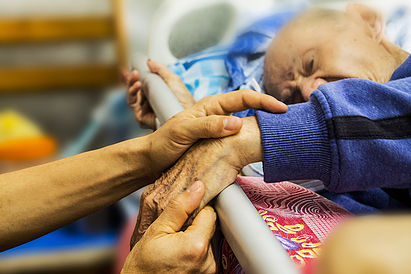In the end, we all know that life is fleeting. Throughout our lifetime, we will more than likely witness the end of the road for one or more of our loved ones. This might entail accompanying them on the journey by caring for them as they prepare to leave this world.
Becoming an in-home caregiver entails a variety of responsibilities. According to the National Institute of Aging, this includes providing for physical comfortand emotional needs, dealing with spiritual issues, and doing some practical tasks. These tasks may include administering medication, bathing and feeding, and putting together a living will. In addition, there is the question of your personal grief and pain as you help your loved one depart with grace.
What to Expect
As an in-home caregiver of a terminally ill person, you might be expected to provide day-to-day comfort. The New York Times suggests that it is important to consider the needs of the patient’s situation but also that of the caregiver’s. According to Redfin, “Bringing home a terminally ill loved one can be an emotionally charged time in both the caregiver’s life and the final days of the patient. Coming home can bring a great deal of peace and comfort to a person looking at the end of their life.” Being at home can be a great privilege and blessing, and caregivers should be prepared for the difficulties that come with this process.
Grieving Before a Death
As we anticipate death, it is normal to begin feeling a deep sense of sadness. This is called anticipatory grief. Accepting that this is a normal part of the process can help us cope.
Connect and reach out. Being a caregiver can sometimes feel isolating, but finding ways to connect and talk with others in similar situations can provide a spiritual fortification and inspiration to move forward. Don’t be afraid to ask for help and establish a support group that can offer a helping hand when things get too overwhelming.
Put meaning into every moment. When we feel the life of our loved one dimming out, it’s important to reflect on the time we’ve spent together, but also on the time we have left. Make it count and inject laughter and love into every day.
Tend to yourself. Caregivers often get so involved in the care of their loved ones and their needs, that they neglect their own needs. Taking care of yourself involves both your physical and emotional health. Make time to eat right and squeeze in some physical activity.
Don’t forget to schedule your own doctor checkups and stay on top of your medical needs. Don’t ignore your mental health; when feeling overwhelmed, take some time for yourself and escape for a moment if necessary by taking a walk or blowing off some steam.
How to Honor Them for a Lifetime
When the day finally it comes, it is still likely to be a shock. There is often an emptiness left in the home, a sense of quiet and stillness. Find ways to achieve a bit of closure and move on from the initial grief.
Have a memorial service. This type of event is aimed at celebrating your loved one’s life and coming together over his or her impact in the world. It is usually composed of family and loved ones getting together and sharing memories and thoughts about the deceased.
Engage in personal rituals. According to Atlantic magazine, personal rituals can help in honoring your loved one for years to come. Engage in rituals that have special meaning or pay tribute to a unique aspect of your relationship with the deceased. For example, if you and your mother went for a walk on Thursdays, you might continue this tradition as a way to keep her memory and spirit alive.
Death is never an easy parting. Grieving before death is normal when a loved one is suffering or slowly fading into the eternal. What matters in the end is that we stay strong for our loved ones, provide comfort, and relish and celebrate their life. They will live, after all, in our memories for years to come.
Photo Credit: Pixabay








